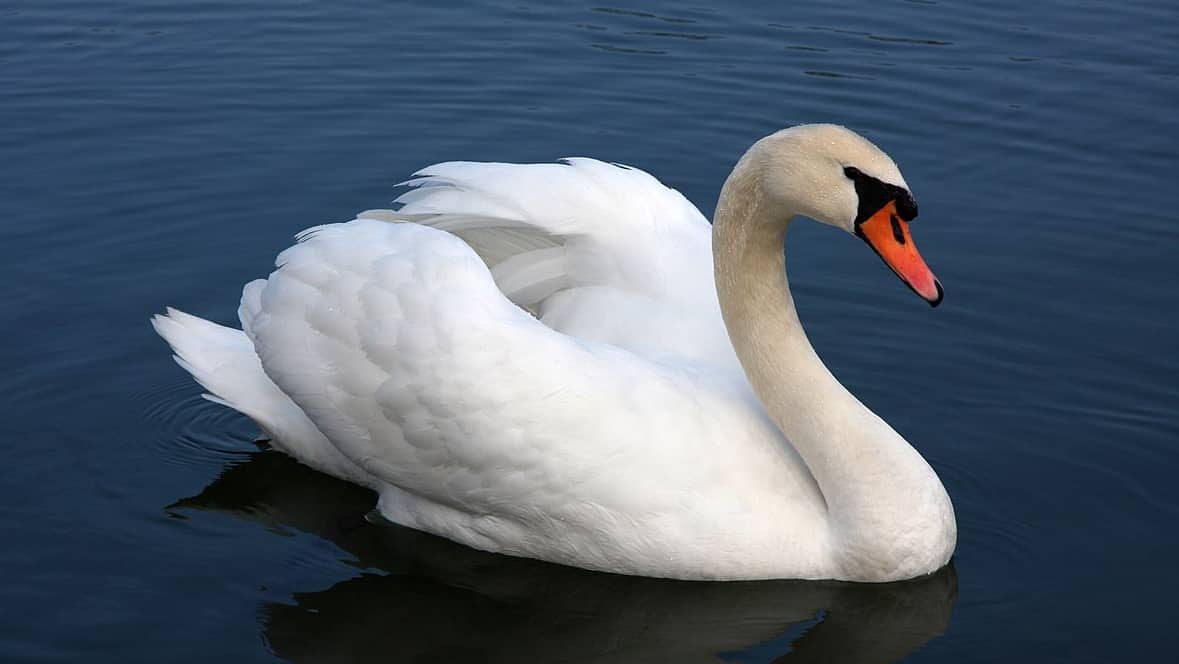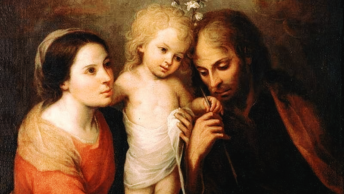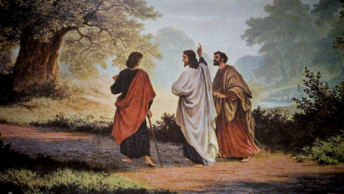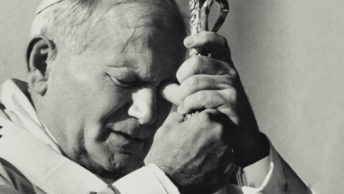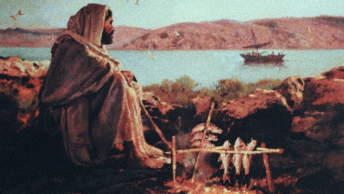In the Gospel of Luke (5:1-11), Jesus turns to Simon Peter and says: “Put out into deep water and lower your nets for a catch.” In reply, he speaks for himself and the other disciples: “Master, we have worked hard all night and have caught nothing, but at your command I will lower the nets.”
And, of course, many of us know, to recall the late Paul Harvey, the rest of the story: (1) There is a massive catch; (2) There is great remorse from Peter for doubting Jesus; and (3) Jesus provides Peter and the other disciples their mission: to preach salvation in the deep waters where God’s people live. And while doing so, to remember one important thing: “Do not be afraid.”
This Gospel story is easily understood because it embraces the rhythm of our lives. For, over and over, we are asked to take that “next step.” Whether it be our first step when we are small, or our step into adulthood, or our step into a career, or that step into marriage and family. Truly, at whatever step we find ourselves, there is a sense of trepidation. During these times, however, Jesus’ words should ring in our ears: “Do not be afraid.”
Why so? Because God loves us so much and that He has made us for each other. After all, not one of us lives on a deserted island. But rather, we live our lives in communion with one another: in families, in parishes, in towns and states and nations. When we put it this way, when we come to understand how God has bound us together so that we might build each other up, perhaps those next steps in our lives really aren’t so scary.
Think, for example, of the moments in our lives when we have doubted our life choices and how, seemingly out of nowhere, an insight of encouragement presents itself. For example: How many of us recall being told by a parent, priest, coach, or teacher that we are good at something and we should pursue it? Or, how many of us, after having pursued a path for a time, have remained confused and uncertain about our choices and asked: “Just what am I doing?”
Until, of course, a gentle calm comes to rest upon us. And we know, we just know, that we are right where God has meant us to be.
In my own life, I felt this as I approached ordination to the diaconate. Having studied and worked toward that day for many years, I remember the morning of my ordination. I was filled with excitement! The day had finally come! The clock had finally come to rest upon me! But, during the ordination rite, I can recall lying prostrate near the altar while the Litany of Saints was chanted. And, rather than being fully engrossed in prayer, I thought: “Me, a deacon. Really?”
But the next morning, after having served my first Mass, everything changed. The wife of the deacon with whom I had served my internship approached me and said: “How do you feel, deacon?” And in that instant, I knew that I was where God wanted me.
As parents, I think it is the same. Prior to our first child’s arrival, we worry and worry and worry some more. Will I be a good mother or father? Will I be able to provide solid guidance to my child as they progress through life? Then, they are born. And a nurse hands them to us, we hold them in our arms, and all of our fears are erased. We marvel and think: “This child has been meant for me since before time began and that I couldn’t imagine life without him or her.”
And so, Jesus tells us to not be afraid of the deep; but rather, to find, embrace, and cherish it.
Regarding deep water, St. Basil the Great (a 4th century Doctor of the Church), once wrote:
“Now, if you notice how the swan, putting its neck down into the deep water, brings up food for itself from below, then you will discover the wisdom of the Creator, in that He gave it a neck longer than its feet for this reason, that it might, as if lowering a sort of fishing line, procure the food hidden in the deep water.”
By doing so, St. Basil calls us to notice not just the wisdom of the Creator, but also that the swan finds himself procuring food hidden in deep water.
And just what is this food? As Catholics, we know this food to be the Holy Eucharist: Jesus’ body, blood, soul, and divinity that we consume at Holy Mass.
But, in returning to Jesus’ words to His disciples (and us), once we consume this food and ponder this mystery, our mission is to wade out into the deep waters and share the One who has saved and redeemed us—with others!
Are we perfect messengers? Absolutely not. In this regard, we do well to remember the response of the prophet Isaiah (6:1-2, 3-8) after hearing the Lord ask: “Whom shall I send?” His response: “Send me.” Or still better, the words of the Apostle Paul (15:1-11): “For I am the least of the apostles, not fit to be called an apostle, because I persecuted the church of God. But by the grace of God, I am what I am, and his grace to me has not been ineffective.”
Regarding our trip into the deep, I have one more observation. On our journey, in meeting others, Jesus tells us that He will provide us with the talents, insights, and words which we are to pass on. But He doesn’t promise that we will be allowed to stay and see “the rest of the story.” Our interaction with a person might happen just once. And then, that person moves on. Or, if we’re a parent, for 18 years. And then, our child moves on—to live their own lives. Whatever the case may be, the bottom line is that we will have helped form them into the persons they will become and they will have taken a piece of our own wisdom with them—and make it their own.
Perhaps David Elton Trueblood, a 20th century Quaker theologian and personal friend to Presidents Eisenhower, Johnson, Nixon, and Reagan summed this up best when he wrote: “A man has made at least a start on discovering the meaning of human life when he plants shade trees under which he knows full well he will never sit.”
So, let us go out into the deep!

